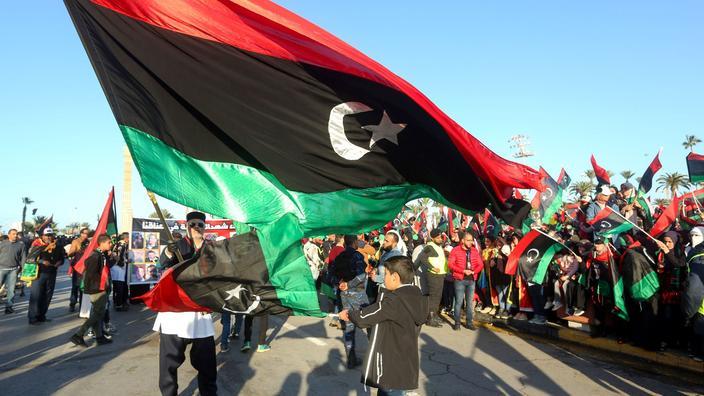Antoine Basbous is founder and director of the Observatory of Arab countries.
How to resolve the equation that characterizes the Libyan scene - and that of most Arab countries - namely to establish a democracy without democrats?
The first of the rules of democracy is that the country's orientations be decided sovereignly. However, the “Libyan case” is aggravated by the presence of foreign powers which defend their own strategic interests as well as nearly 20,000 mercenaries (Syrians, Sudanese, Chadians…). This is the case of Turkey, which is deploying forces in Tripolitania by justifying its presence by an agreement made with the internationally recognized Libyan government; and this is also the case of Russia nostalgic for the Soviet Empire and which seized the opportunity to send men from the paramilitary group Wagner, under the orders of the Kremlin - a presence that Moscow officially denies, despite the deployment of its air force military in the country!
The hold of Moscow and Ankara is such that one could speak of a Russian-Turkish condominium consolidating in the Libyan theater.
Antoine Basbous
The hold of Moscow and Ankara is such that one could speak of a Russian-Turkish condominium consolidating in the Libyan theater.
These are, for example, Wagner's men who secured Saif al-Islam Gaddafi's trip to Sebha (South) to present his candidacy for the presidential election ... Worried about a result that goes against his interests, Ankara summoned his "allies" and asked them to torpedo the deadline.
Then, for democracy to take hold, the verdict of the ballot box must be respected. However, it is not certain that the Libyan militias will bend to the exercise tomorrow, while they constitute the main
de facto
force
in Tripolitania, financed by public money, and that they have always refused to submit to the civil authorities. The example that Iraq is living at the moment is eloquent: having lost the legislative elections, Iran's auxiliary militias refuse to recognize the results, maneuver to modify them and end up demanding the cancellation of the vote.
In Tripolitania as in Cyrenaica, the political "barons" or militiamen spend public money without taking into account any serious control and cling to their fiefdoms from which they derive power and wealth - especially as the Central Bank distributes funds. wages quite indiscriminately.
Corruption in Libya has reached astronomical heights, regularly noted by the Court of Auditors.
Read also France relaunches the process to pacify Libya
The “citizen spirit” is also not very widespread in the country.
Artificially unified, Libya remains marked by
asabiyya
, this concept developed by the thinker Ibn Khaldoun (14th century) and which consists in automatically expressing, in a "segmental" society, an esprit de corps and a primitive solidarity with his family, his tribe, his city or his community. It is therefore not enough to see 86% of the electorate withdraw their voting card for citizens to express their choice. It is above all a desire to count oneself in one's circle of influence with tribal or regional reference which will guide the bulletins. The country is thus very far from a governance by political compromise which would escape the still very majority patronage vote - the "ideological" vote counting for only 5% of the voters.
Finally, the democratic spirit of the rule of law and checks and balances are lacking in Libya. During his 42 years of reign, Gaddafi ruled as an absolute monarch who embodied all powers without any constitutional framework. As an extension of this bad practice, the President of the House of Representatives promulgated an electoral law tailored to his favorites without a real vote from a parliament already divided and exiled 1,200 km from the capital. The Prime Minister did even better by buying the favors of the magistrates of the Supreme Judicial Council, able to prevent him from competing: he raised their status and their remuneration with a retroactive effect over 28 months! The strongman model continues to inspire many politicians who would like to take up the torch from Gaddafi.
While the stakes are immense - the country is both a strategic lock at the gates of Africa, a migration highway and a source of energy for its European neighbors - the path to Libyan stability and independence appears still quite steep.
Antoine Basbous
The value of the law is, for its part, quite relative.
One day accepted by those to whom it benefits, it can be rejected the next day by the same because it will then go against their interests.
No institutional mechanism is able to irrefutably arbitrate disputes.
Libya thus lives in the logic of a permanent coup d'etat extending on a smaller scale, and in chaos, that of Gaddafi of September 1, 1969.
With this state of mind, Libya is not immune to a new institutional drift. The chances of holding the presidential and parliamentary elections on December 24 are increasingly slim. A “technical” postponement is on the horizon. All the players want it, but none of them dare to assume it openly! And the temptation is great to appoint another executive in place of the transitional government in Tripoli, which must fall at the same time as the deadline for the elections it is supposed to organize. All the arguments are good for torpedoing the deadlines and for multiplying the parallel authorities. While the stakes are immense - the country is both a strategic lock at the gates of Africa, a migration highway and a source ofenergy for its European neighbors - the road to Libyan stability and independence still seems very steep. The upcoming elections may therefore represent a further problem than a solution to the Libyan chaos.

